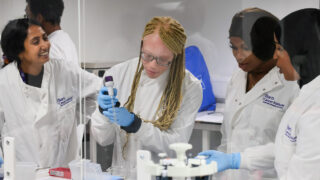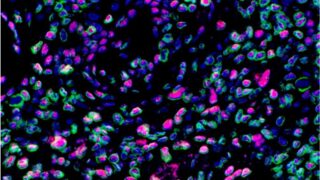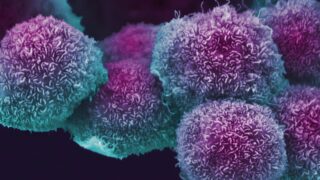Page Not Found
The page you are looking for doesn't exist or another error occurred.
Please use the menu above or the search form below to try another section.
Latest News

11th August 2025
£10m awarded to partnership investigating innovative radiolabelled nanomedicines
Researchers at Barts Cancer Institute (BCI), Queen Mary University of London, will play a part in a revolutionary new partnership with King’s College London and the University of Leeds, aiming to accelerate and optimise the clinical translation of healthcare nanotechnologies.

29th July 2025
Aspiring scientists gain a ‘burst’ of inspiration at the BCI
This month, we welcomed a total of 43 aspiring young scientists from across London to the Barts Cancer Institute (BCI), Queen Mary University of London, where they had the opportunity to meet researchers, try their hands in the lab and learn more about what it takes to become a scientist.

23rd July 2025
Could a breath test detect blood cancer?
Molecules exhaled in the breath may provide clues to detect blood cancer, according to new research by scientists at Barts Cancer Institute. The findings could enable the development of a blood cancer breathalyser, providing a rapid, low-cost way to detect disease.

2nd July 2025
Cells’ recycling system plays a surprising role in shaping immune cells DNA
Researchers have discovered a new mechanism by which B cells – antibody-producing immune cells – use a cellular recycling process called autophagy to control changes to their DNA essential for antibody improvement. The findings could have future implications for the development of certain blood cancers and autoimmune diseases.

8th June 2025
Study reveals molecules enabling bowel cancer to hijack healing processes and spread
Scientists have uncovered how bowel cancer cells imitate our gut’s natural healing processes to adapt, spread and grow. The findings researchers at Barts Cancer Institute could lead to new treatment strategies aimed at preventing cancer spread.

22nd May 2025
Scientists explore new way to bring CAR-T cell therapy to pancreatic cancer
A new strategy to help powerful cancer-targeting immune cells, known as CAR-T cells, infiltrate pancreatic tumours has been developed by researchers at Barts Cancer Institute, Queen Mary University of London. The unique three-pronged approach could pave the way for making CAR-T cell therapy—a treatment that has transformed care for certain blood cancers—effective against pancreatic cancer, a disease that remains very difficult to treat.
